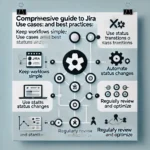In the ever-evolving landscape of software development, efficiency is paramount. This is where low-code software development tools come into play, reshaping the way applications are built and accelerating the development process. In this comprehensive guide, we’ll delve into the world of low-code development tools, exploring the latest trends and a curated list of tools that are making waves in the industry.
Understanding Low-Code Development
Before we dive into the tools, let’s grasp the concept of low-code development. At its core, low-code development is a visual approach to application development that allows developers to create applications with minimal manual coding. It’s a game-changer for both seasoned developers and business users with limited coding expertise.
Trending Keywords in Low-Code Development:
1. Rapid Application Development (RAD): Rapid development cycles are at the heart of low-code tools, allowing for faster app creation.
2. Drag-and-Drop: Many low-code platforms offer intuitive drag-and-drop interfaces for building app components.
3. Integration: The ability to seamlessly integrate with other systems, APIs, and databases is a crucial aspect of modern low-code tools.
4. AI-Powered Automation: Some platforms now incorporate AI for automating routine development tasks, enhancing productivity.
5. Scalability: Scalability is vital as applications need to grow with business needs. Look for tools that support scaling.
6. Security: Robust security features are non-negotiable in today’s digital landscape. Ensure your low-code tool prioritizes security.
Top Trending Low-Code Software Development Tools
Now, let’s explore some of the trending tools in the low-code development space:
1. Microsoft Power Apps: Microsoft’s Power Apps empowers users to build custom apps with ease, leveraging AI and data integration capabilities.
2. OutSystems: Known for its robust platform, OutSystems enables the development of complex, scalable applications quickly.
3. Mendix: Mendix is a leader in low-code development, offering a comprehensive platform for creating web and mobile apps.
4. Appian: Appian’s low-code automation platform emphasizes workflow automation and intelligent document processing.
5. Google AppSheet: Google’s AppSheet is a no-code/low-code tool for creating apps directly from Google Sheets.
6. Salesforce Lightning: Salesforce’s Lightning platform provides tools for building customer-facing applications and automating business processes.
7. Pega: Pega’s low-code platform integrates AI and robotic automation for a comprehensive application development experience.
8. Zoho Creator: Zoho Creator is a versatile low-code platform suitable for building web and mobile apps for various industries.
9. Quick Base: Quick Base offers a no-code/low-code platform for building custom business applications.
10. Appgyver: Appgyver stands out with its user-friendly interface and the ability to create apps that integrate with various data sources.
Choosing the Right Tool for Your Project
When selecting a low-code development tool, consider factors such as your project’s complexity, scalability needs, integration requirements, and the level of customization you desire. Each of the mentioned tools has its unique strengths, so evaluate them in light of your specific goals.
Conclusion
Low-code software development is experiencing a renaissance, offering unprecedented speed and agility in application development. By embracing the latest trends and selecting the right tool for your project, you can harness the power of low-code to streamline development processes, reduce costs, and drive innovation. Stay updated with the ever-evolving landscape of low-code development to stay ahead in the world of software innovation.






